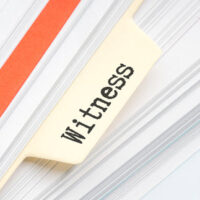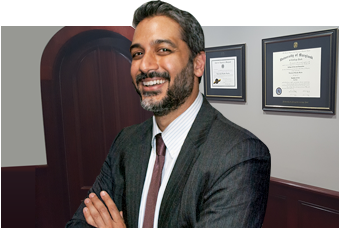Are Eyewitnesses All They’re Cracked Up To Be?

Let’s say you’ve been arrested and charged with a crime. The prosecution is pretty confident they’ve got the case all locked up. After all, they have eyewitness testimony from a very upstanding member of the community. Should you be nervous? Not necessarily. Without question, criminal charges of all kinds should raise concern. But the fact of the matter is that eyewitnesses are not as reliable as you may have been led to believe. Any top-notch defense attorney knows that there is a boatload of research that debunks the reliability of this type of testimony.
Research Reveals the Truth
Decades worth of research on eyewitness testimony reveals that it’s not at all ironclad. Witnesses of all stripes tend to make mistakes, simply due to the nature of human memory. In fact, visual perceptions coupled with memory tend to make eyewitness testimony one of the least reliable! To be sure, many convictions that were based largely on eyewitness accounts of the event were later overturned through DN and other evidence. One study revealed that more than 7 out of ten overturned convictions were originally based primarily on eyewitnesses, and nearly one-third of those cases had two or more eyewitnesses who provided provably errant testimony.
Understanding Memory
The fact of the matter is that human memory is like puzzle pieces that need to be reassembled. When questions are posited to witnesses, those questions may actually inadvertently commingle with real memories. The words and information provided by the questioner can actually lead to inaccurate recollections, however unwitting. Additionally, the dynamics in a stressful criminal situation can definitely impact memory:
- Witnesses are often distracted by the presence of a weapon;
- The amount of time witnesses are given to view a criminal situation are often very short;
- Perpetrators often lack unique distinguishing characteristics (such as being particularly tall, bald, etc.);
- High stress levels combined with many concurring events can confuse witnesses;
- During the identification process, witnesses frequently are limited by time and feel pressure to “get it right.”
What if a Witness is 100 Percent Certain?
A fascinating look at people’s certainty about their recollections occurred with the Loftus study. Researchers were surprised at the number of memory errors they found in subjects who were certain that they were recalling events correctly. In the study, participants were given three true stories and one false one about events that had occurred years earlier in their lives. The false narratives were beefed up with realistic details provided by relatives. One in three study participants claimed that the false narrative had actually occurred, despite the fact that researchers had concocted the story. Subjects truly believed a fictional event had occurred in their lives that was actually a figment of the researchers’ imaginations.
How to Defend Against False Certainty
At The Law Office of Hammad S. Matin, P.A., our La Plata & Waldorf criminal defense lawyers understand that most witnesses have no reason to testify falsely; they simply make unintended errors. If eyewitness testimony is a key factor in the case against you, we know precisely how to proceed. To discuss your situation, schedule a confidential consultation today.
Resource:
scientificamerican.com/article/do-the-eyes-have-it/

